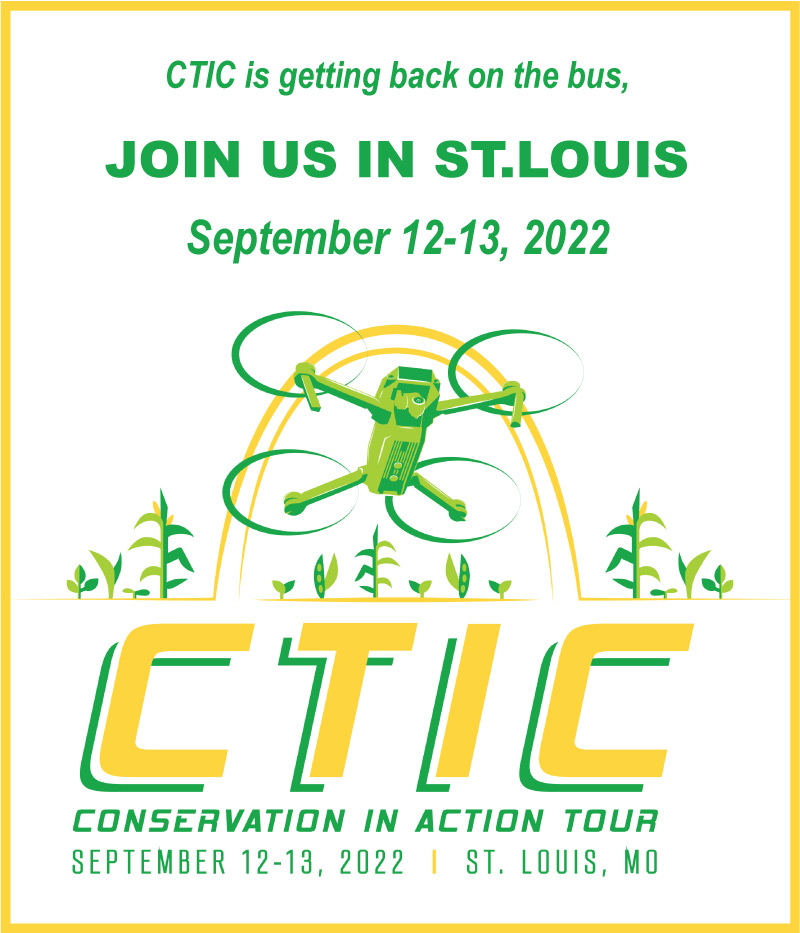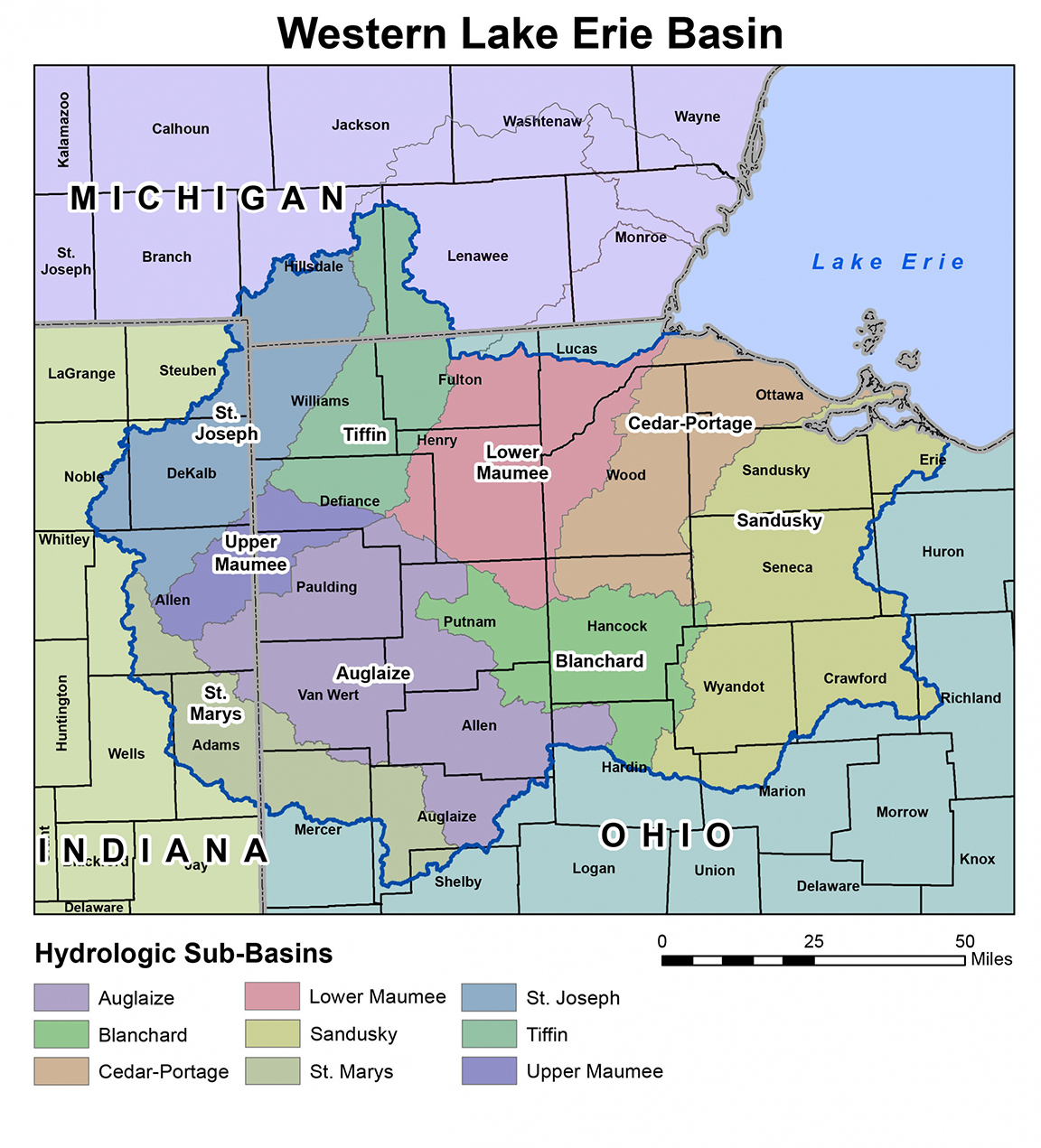CTIC To Lead Development of the CSA Connector for a New USDA Climate Smart Partnership Program
FOR IMMEDIATE RELEASE
For more information, contact:
Dave Gustafson, (314) 409-7123; gustafson@ctic.org
CTIC to Lead Development of the CSA Connector for a New USDA Climate Smart Partnership Program
WEST LAFAYETTE, Indiana (September 22, 2022) — The Conservation Technology Information Center (CTIC), in partnership with The Nature Conservancy and Houston Engineering, will lead development of a new online tool, the Climate Smart Agriculture (CSA) Connector, as a key element of a new project selected last week for funding by the U.S. Department of Agriculture’s (USDA) Partnerships for Climate Smart Commodities program.
The overall project is being led by the Wolfe’s Neck Center for Agriculture and the Environment, which was awarded up to $35 million by USDA to conduct this new partnership pilot. Through their global collaborative, Open Technology Ecosystem for Agricultural Management (OpenTEAM), Wolfe’s Neck Center will lead an alliance of over 60 national and regional buyers, funders, and organizations to launch and support climate-smart agricultural pilot projects on farms and ranches in the Northeast, Mountain West, and California.
The CSA Connector is an app being developed by CTIC and its partners to play a key role in the program by connecting all of the relevant participants in the emerging climate smart commodity marketplace—buyers, producers, technical service providers, and certifiers–with each other and with the information needed to support transactions among them. Using the innovative OpenTEAM work environment, participants will have easy access to a wide range of resources, including environmental claims registries, calibration data sets, and other information libraries. OpenTEAM emphasizes integrability, interoperability, full transparency and accountability.
“We are honored to be part of the impressive team that Wolfe’s Neck Center has assembled to conduct this project. It represents an important first step in the larger global imperative to adapt our nation’s agri-food system to the challenges of climate change, and to also make tangible progress on the effort to bring carbon neutrality to all of society,” said Dr. Dave Gustafson, interim executive director at CTIC.
Dr. Gustafson also notes there are potential opportunities for the CSA Connector to contribute to the other pilot partnership projects just selected for funding by USDA. “We are excited about the numerous ways the CSA Connector could play a helpful role in many of the new efforts to pilot the new climate smart commodity concept. USDA is encouraging collaboration among the various pilots, and we look forward to doing our part.”
CTIC learned this good news just after celebrating its 40th Anniversary last week in St. Louis, while also conducting its 15th annual Conservation in Action Tour, which attracted a diverse group of nearly 150 participants including farmers, crop consultants, researchers, agribusiness leaders, conservation staffers, and policymakers. During the morning, attendees saw climate smart practices such as cover crops and conservation tillage at work in the field. Later, they moved indoors to the Donald Danforth Plant Science Center to hear from a number of experts about what the future will bring in several key climate smart areas: soil carbon technologies, data science, remote sensing, and advanced nutrient technologies.
About the Conservation Technology Information Center
The Conservation Technology Information Center (CTIC) was formed in 1982 to support the widespread use of economically and environmentally beneficial agricultural systems. Members of CTIC, a non-profit 501(c)(3) organization, include farmers, policy makers, regulators, academic researchers, agribusiness leaders, conservation group personnel, farm media, and others. The organization is supported by the U.S. Environmental Protection Agency, USDA Natural Resources Conservation Service, and other public entities. CTIC’s mission is to champion, promote and provide information on climate smart technologies and sustainable agricultural systems that conserve and enhance soil, water, air and wildlife resources and are productive and profitable. Learn more about CTIC at www.ctic.org.
About Wolfe’s Neck Center for Agriculture and the Environment
Wolfe's Neck Center is a nonprofit, farm-based education, research, and visitor center on a mission to transform our relationship with food and farming for a healthier planet. By facilitating knowledge and best practice sharing, educating a wide variety of learners, and convening a community of people who care about the future of food and the planet, Wolfe's Neck Center aims to help make agriculture a solution to climate change. To learn more about Wolfe’s Neck Center, click here.
Led by Wolfe’s Neck Center, Open Technology Ecosystem for Agricultural Management (OpenTEAM), is a farmer-driven, collaborative community committed to improving soil health and advancing agriculture’s ability to become a solution to climate change through the codevelopment of an interoperable suite of tools. By acting as a convener, technology steward, and facilitator, OpenTEAM is increasing the integrity, interoperability, and knowledge shared across the agricultural technology landscape for a more sustainable technology ecosystem. To learn more about OpenTEAM, click here.

